Tens of thousands of people are likely to buy a new car this month – with January continuing to be the busiest month of the year for the sector.
But while Irish drivers tend to favour European, Japanese and Korean brands, some are starting to have their heads turned by what China has to offer.
Is the Chinese car industry big?
We need your consent to load this rte-player contentWe use rte-player to manage extra content that can set cookies on your device and collect data about your activity. Please review their details and accept them to load the content.Manage Preferences
Yes, it’s massive industry.
Somewhere in the region of 23-27 million cars were produced in China last year.
To put that in context, the European Union produced a little under 11 million cars in 2022. In the US it’s actually a little lower; though in the wider North American market, around 14-15m cars were produced in the year.
So China is making far more cars than others and has been for some time. But, until recently, most of that was targeted at the Chinese market; so most of what was made there, stayed there.
But that’s changing now…
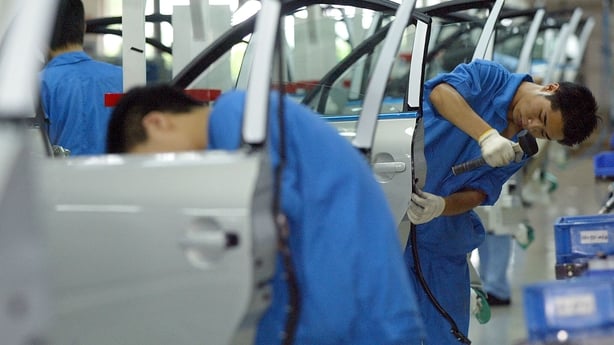
Yes – the past decade or so has seen a real up-tick in Chinese car exports – and it’s really picked up in the past two years.
Back in 2010, around 545,000 vehicles were exported by China – that includes commercial vehicles.
Ten years on, by 2020, that had nearly doubled to just under one million.
But then, in the space of a year, the number doubled again – with 2m exported in 2021.
It rose again in 2022, with more than three million vehicles exported.
And that trend continued into 2023.
It’s still too early for final figures, but it was expected that Chinese car exports would hit 5 million in 2023.
And that’s having a massive impact on other countries, too. Just under a year ago, China overtook Japan to become the biggest exporter of cars in the world.
Which shows you that there has been a concerted, and really coordinated push by the country and its manufacturers to start selling cars overseas.
But I don’t know of any Chinese car brands...
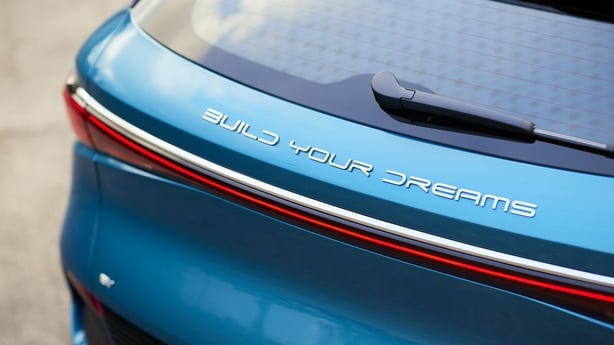
We now have multiple Chinese car brands on Irish roads, you just might not have realised it.
You’ve almost certainly seen them, perhaps you even own one and don’t realise where it was made.
BYD is probably the most obvious one – having only started selling here last year there are already hundreds of its compact SUV on the road.. and it’s just after launching its third car model here.
BYD stands for Build Your Dreams, by the way... though that’s a baccronym; it actually comes from its full, Chinese brand name Biyadi.
In its ads it says that it’s the biggest car brand you’ve never heard of... but it’s actually now the biggest electric car company full stop.
In the final three months of last year it produced more battery-powered cars than even Tesla for the first time ever.
Aside from BYD, China is also home to Ora, which has a small car called the Funky Cat. Its second model will launch here this year too.
Then there’s Polestar, which is a higher-end electric car company.
Technically that’s a Swedish brand – and here’s where the Chinese move into global car making gets interesting.
Because Polestar was acquired by Volvo in 2015, and Volvo is in turn owned by Geely Automotive; which is a Chinese car maker.
All the Polestar cars are made in China – some Volvo cars are made there too, though they still operate production facilities in Europe and North America.
Another storied car brand that’s now in Chinese ownership is MG.
The once British car brand was bought by Nanjing Automobile Group in 2005 – it later became SAIC, which is a Chinese state car maker. So there’s a direct line between the government there and its expansion into global car markets.
Volvo and MG are well-established brands here and have decent levels of sales to match.
So when you add them in, along with BYD, Ora and Polestar, you see that more than 4,700 Chinese cars were sold in Ireland last year.
Now, that is only about 4% of the total number sold so far this year – but it is nearly double the number from last year, so their market share is growing rapidly.
Bear in mind, too, that both BYD and Ora only launched in Ireland last year. Polestar arrived here in 2022.
Why are they making such a big push?
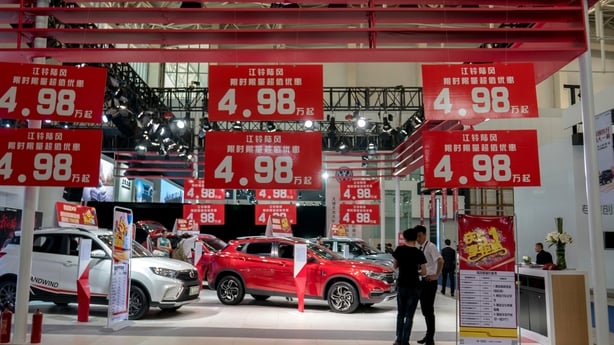
Well first and foremost it’s about money.
China has built up a significant expertise in mass-producing cars, and it sees the opportunity to sell those cars to people around the world.
But there’s a practical element to that, too, because the scale of production is at the point now where it’s out-stripping domestic demand.
They’re making more cars than they can sell within China, so the options are for manufacturers to scale back – and maybe reduce staffing, or cut costs in other areas, or else it’s to find someone else who’ll buy what they’re making.
And this over-supply comes at an important time in the global car market – because we’re sitting right in the middle of this once-in-a-generation transition away from fossil fuel-powered cars, and towards electric vehicles.
And you’ll notice that, of the three new brands from Chinese manufacturers – BYD, Ora and Polestar – they’re all 100% electric car makers, at least in terms of what they’re selling here.
Volvo and MG are traditionally petrol and diesel car makers, of course, but they are significantly ramping up their electric offerings too.
And that’s important for two reasons – firstly, electric-only manufacturers have an advantage over other car-makers that are trying to transition, because they’re not trying to balance two very different production lines, and two very different markets.
The messaging is also very clear – these guys are electric car specialists; it’s not something they’ve just jumped on to.
Aside from Tesla, and a few other very small brands, there aren’t really another car makers that can position themselves like that.
But the other reason why the EV transition is important to this influx of Chinese cars, is because of the other advantage it gives them.
China has built itself up as a major player in the battery market – both in terms of being a source for some of the main components in modern, large batteries, but also in their production.
And of course batteries are a major part of an electric car. They’re also a major part of the cost of production – they represent around 40% of the cost of producing an EV.
So if Chinese firms are already sourcing and producing batteries at a large scale, building a car around that and selling it on is almost the easy part.
BYD actually started out making rechargable batteries, then branched out into batteries for mobile phones, before eventually building the car-making side of its business.
But Europe isn’t happy about all of this…
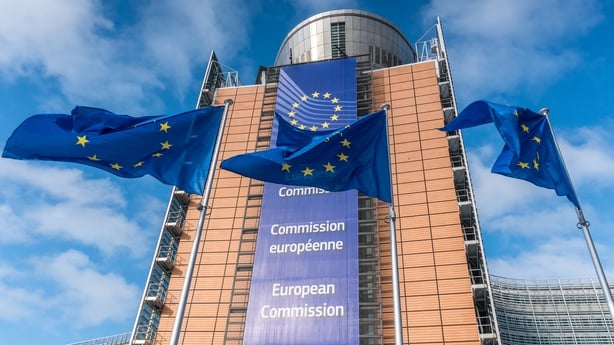
To say it has "concerns" might be the diplomatic way to put it.
Back in October it launched a probe into the influx of Chinese cars into the European market.
It’s officially an anti-subsidy investigation, which tells you where their concerns are.
Because the fear among European officials is that China has been, and is continuing to, support or subsidise its manufacturers in order to help them grow rapidly.
And assuming for a second that that was the case – it would obviously create massive issues for the European market.
Firstly it would give Chinese producers an unfair advantage from day one – because designing and producing cars is expensive and risky business… unless you have the State picking up the tab.
And then when it comes to selling those cars, if you’re getting subsidies and supports, you can come in and undercut your rivals in order to attract in buyers.
If that happens for long enough, suddenly it could threaten the future of European manufacturers – which would not only be a major threat from an economic and employment point of view… but it would also undermine Europe’s self-sufficiency in a really important area.
The EU claims that this flooding of the market with Chinese-subsidised products is what has already happened in the area of solar panels – and that European manufacturers were wiped out because they couldn’t compete with China.
And it definitely is the case that the likes of BYD is pricing its cars in a way that European and American producers are struggling to compete with.
But those in the Chinese car industry deny that this is due to unfair state supports – but just a benefit of them controlling more of the supply chain that goes towards making the cars.
China itself denies it’s subsidising car-makers – and it’s also complained about a lack of information, and time, for it to respond to the accusations from Europe.
Have any security concerns been raised as part of this probe?

No, interestingly, for the moment this investigation has a very narrow focus around subsidies – and no-one in Europe has been talking about security concerns around Chinese cars.
But some officials in the UK and the US have separately raised points around that – and you can see why.
There has already been a lot of concern raised about TikTok in the past year or two – and the claims that it gives a backdoor to Chinese security services.
That’s a claim TikTok has continually denied, but it’s still led to other countries banning the app, or telling civil servants not to use it on their official devices and so on.
But, whatever about the data that a social media app like TikTok might be able to gather about its users, it pales in comparison to a car.
Because modern cars are laden down with sensors and computer chips and different forms of connectivity… and if you can imagine what someone would be able to learn about you if they could track your car’s movement, or even tap into the handsfree microphone, or the link it has with your smartphone, you can see just how valuable a car could be *if* someone wanted to monitor you.
So far, though, there don’t seem to be many in Europe who feel there’s a reason to be concerned about Chinese cars from that point of view.
So what happens if Europe decides China isn’t playing fair?
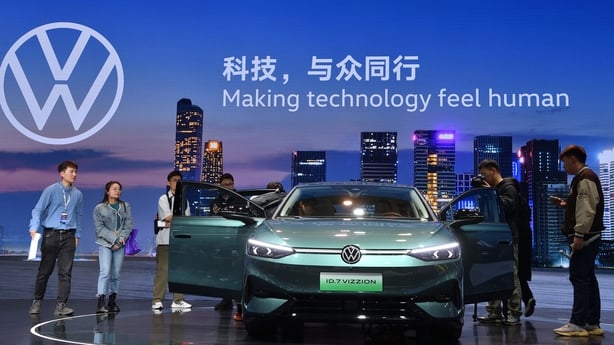
Now that the probe is officially open, the clock is ticking for Europe to make a decision.
Generally the aim is to have a decision within a year – so you’re looking at around October or November.
And if they decide China is subsidising its car-makers and giving them an advantage over European rivals, the most likely course of action is that they add tariffs to the cars that are coming in.
Those tariffs could be enough to balance out the price advantage that the cars are deemed to have – so effectively European buyers would see the price of those cars going up.
In an extreme case they might throw massive tariffs on that effectively price Chinese cars out of the market.
But, of course, these things never happen in isolation – and if Europe imposes tariffs on Chinese cars, you can bet that China will return the favour.
Interestingly, that’s worrying countries like Germany.
They’re of course a major source of European car production – so you’d think they’d like to have their industry protected from rivals – but German car-makers are also deeply embedded in the Chinese market.
Volkswagen, BMW and Mercedes Benz all have joint ventures with local, Chinese manufacturers… and they’d be worried that, if a tit-for-tat kicks off between China and Europe over cars, they’ll get caught in the middle.







